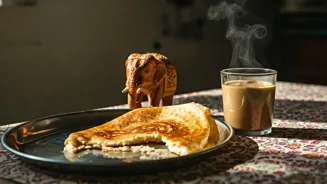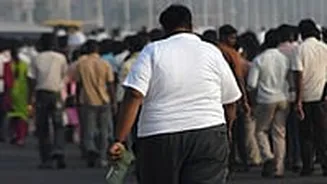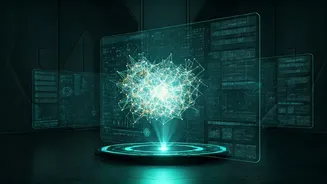Food & Blood Sugar
When you eat, your body breaks down food into glucose, which then enters your bloodstream. This causes a rise in blood sugar levels. Your body then releases
insulin to help cells absorb the glucose, and if the meal contains high-glycemic index foods, this process can lead to a rapid rise and fall in blood sugar, causing fatigue.
Carbs and Sleepiness
Foods rich in carbohydrates, such as rice, roti, or even your favorite samosa, often get converted into glucose more quickly. This rapid influx of glucose can lead to a more significant insulin response. This, in turn, might cause a drop in blood sugar, potentially making you feel tired and sluggish soon after your meal.
The Tryptophan Effect
Some foods contain tryptophan, an amino acid that can be converted into serotonin and melatonin in the brain. Serotonin influences mood and can help with sleep. Melatonin is the sleep hormone. Therefore, a meal rich in these can make you feel more relaxed and induce sleepiness, particularly after a heavy meal.
Meal Timing Matters
Eating large meals close to bedtime can also interfere with your sleep cycle. Your body is working hard to digest food while you are trying to sleep. This can prevent restful sleep. Try eating your meals a few hours before sleeping. It helps in better digestion and helps in better sleep.
Beat the Slump!
To combat post-meal fatigue, try smaller, more frequent meals. Include protein and fiber in your meals, as they digest slower and help regulate blood sugar. Also, ensure adequate hydration and get regular exercise. Consider a brisk walk post-lunch to stay energetic and focused.















